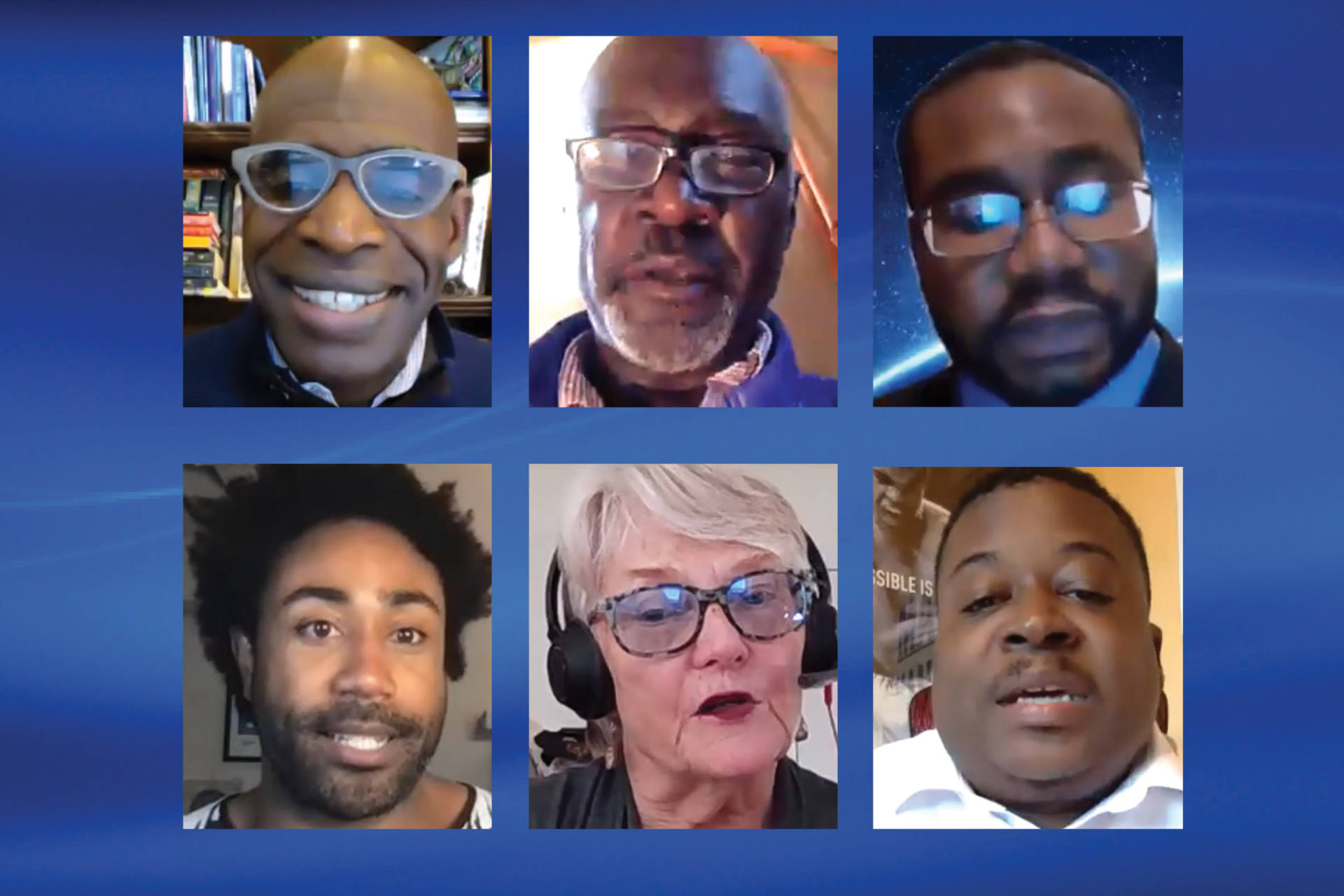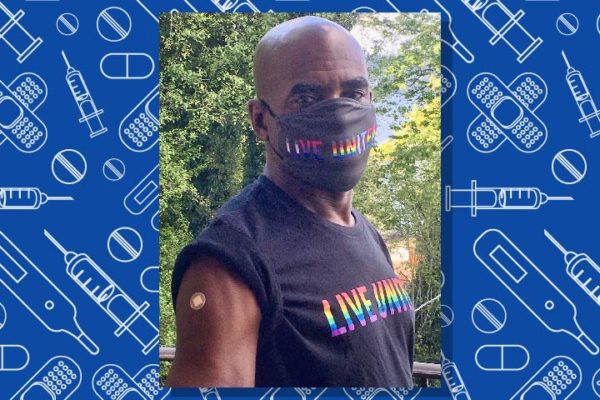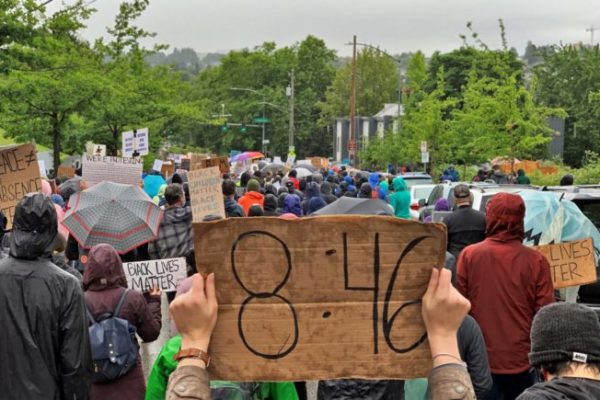Fighting Homelessness in a Post-Pandemic World
The coronavirus pandemic spotlighted the systemic racist conditions that have contributed to the growing challenge of homelessness in the Seattle region. But the health crisis also has lit a path forward on solutions, according to public leaders and advocates who spoke at a recent virtual briefing hosted by United Way of King County.
Solving the crisis will take an effort from all the communities in the county—from the largest cities to the smallest municipalities—to apply the lessons learned over the last 14 months, they said.
The briefing was hosted by Gordon McHenry, Jr., United Way’s president and CEO. Marc Dones, the new CEO for the King County Regional Housing Authority, Patty Hayes, director of Public Health for Seattle and King County, and Ed Prince, councilmember for the City of Renton, served as panelists.
Harold Odom and Johnathan Hemphill, representatives of the Lived Experience Coalition and who have direct experience with homelessness, told the panelists how their backgrounds could contribute to finding solutions. Odom is also the co-chair of the Implementation Board and Hemphill is the co-chair of the Governing Committee of the KCRHA that Dones leads.
Odom said systemic racism exists at every level, and it has contributed to the crisis.
“We need to stop blaming the homeless for being homeless. Homelessness is the result of systems failure,” Odom said. “But those that are closest to the problem are closest to the solution.”
“This is an issue that we cannot solve in King County by shipping away people out of sight to ease our minds.”
Johnathan Hemphill
Hemphill agreed and added that the issue of homelessness is not “rooted in life actions of individuals” but is the culmination of multigenerational social and economic marginalization. He said people living on the streets want to be in stable housing and become members of the community.
“They do not want the humiliation that comes from having to beg for change as outcasts in their own neighborhoods,” Hemphill said.
Hemphill added that people like him need to be “at the table and driving the solutions,” but they are currently “farthest from the resources and power to implement the change.”
Dones, who took the helm of the KCHRA in late April, said there is an opportunity to fundamentally change systems in a post-pandemic world.
“I don’t support any measure that looks like it criminalizes folks for experiencing homelessness.“
Marc Dones
“We have seen inside the pandemic how brutal the systems are that we have engineered over the last 200 years, and we have seen who they harm,” Dones said. “They harm people of color. They harm LGBTQ folks, trans folks, and they do that because they were designed to do that.”
Dones said adding more services to help people experiencing homelessness is not going to solve the problem. “When we talk in this space about homelessness, the solution is housing,” they added.
But part of the problem, Dones said, is that for too long, people working on the challenge of homelessness have taken an individualistic approach when a community effort is needed.
Prince echoed the sentiment, but he said that homelessness “is not a one-size-fits-all issue.”
“The issues that happen in Renton are different than the issues that happen in Auburn or Redmond or even our neighbors, Kent and Tukwila,” Prince said.
Hayes said her organization adapted in how it delivers services during the pandemic, including testing and the COVID vaccine rollout.
“We have always had a mobile team, but we have developed that just hugely with partnerships and building off of this idea that addressing this pandemic has to be community-owned, community-lifted, community-addressed, in order to make it work,” she said.
“We see every day the poor health outcomes and the consequences of homelessness in our work and in the data that we have—the chronic instability and frequent chaos of life that comes with unstable housing or living on the streets. It causes enormous barriers to health access.“
Patty Hayes
Hayes said the public health department is now approaching community-based organizations to help shape solutions. “We need the community to advise us,” she said.
Dones said the pandemic spurred governments to use data in real time to figure out who needs what type of help and where.
“We suddenly got so good at using actual data. It really fundamentally changed the course of our ability to be responsive,” Dones said.
McHenry said that before the pandemic, United Way was focusing on eviction prevention, particularly because the majority of tenants who face losing their homes due to non-payment are people of color. The organization shifted to rental assistance when the pandemic hit and thousands lost their jobs and the ability to pay for housing.
“A lot of us believe if we focus on that kind of strategy, reducing the number of people who are likely to slip into homelessness, it helps to reduce the pressure on the system,” McHenry said. “If you know somebody who is struggling and you have the ability to help them stay where they are, let’s do that rather than, ‘Oh, now that you are homeless, how can we help you?’”
McHenry said some communities are frustrated with the challenge of homelessness, and that has led to local ordinances that forbid people to live in public spaces.
“Any one of us at any point in time could be homeless. We are a medical bill, a family tragedy away from that happening to us. And we wouldn’t want people to look at us hard-heartedly.”
Ed Prince
Prince said some of his constituents think governments are taking too long to deal with homelessness, so there is an overreaction in some cities.
He said he has heard from people who are compassionate but are becoming “more hard-hearted” toward those experiencing homelessness. “That’s what we are starting to see, and that makes me sad,” Prince said.
Looking toward the future, Dones said they believe the region is well-positioned to end homelessness.
“Good public policy bubbles up. It’s not a top-down effort. It comes from the communities, and what we have in front of us is an opportunity to design a system, to implement a system, that lives and breathes that,” they added.
LEC member Johnathan Hemphill said, “We have an opportunity to radically reimagine the system and implement a change that we only thought was a dream.”
For Odom, what is needed, he said, is a system that helps people when they fall.
“Wrap around services are key—people cannot go out there, jump off and be on their own,” he said.





Comments